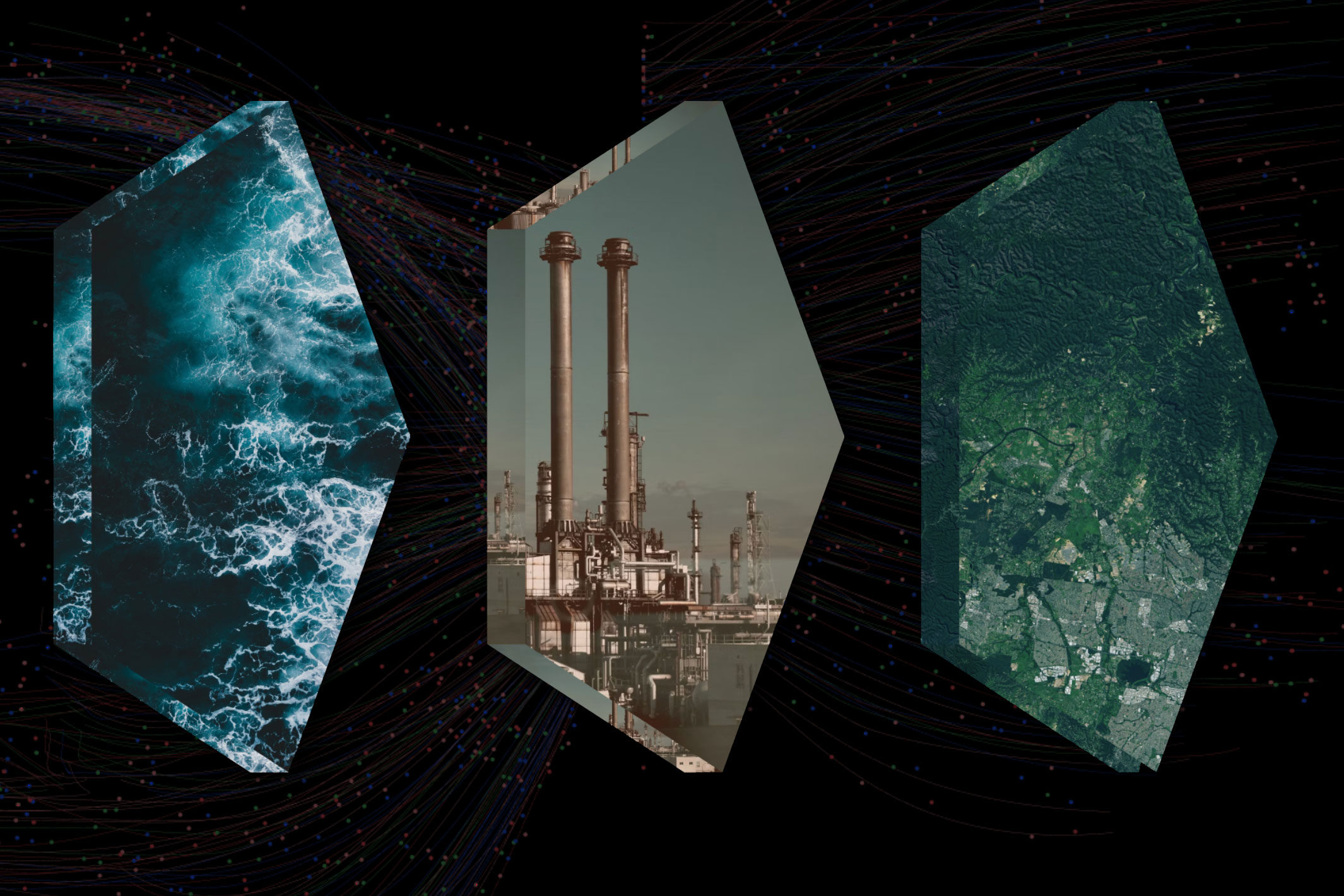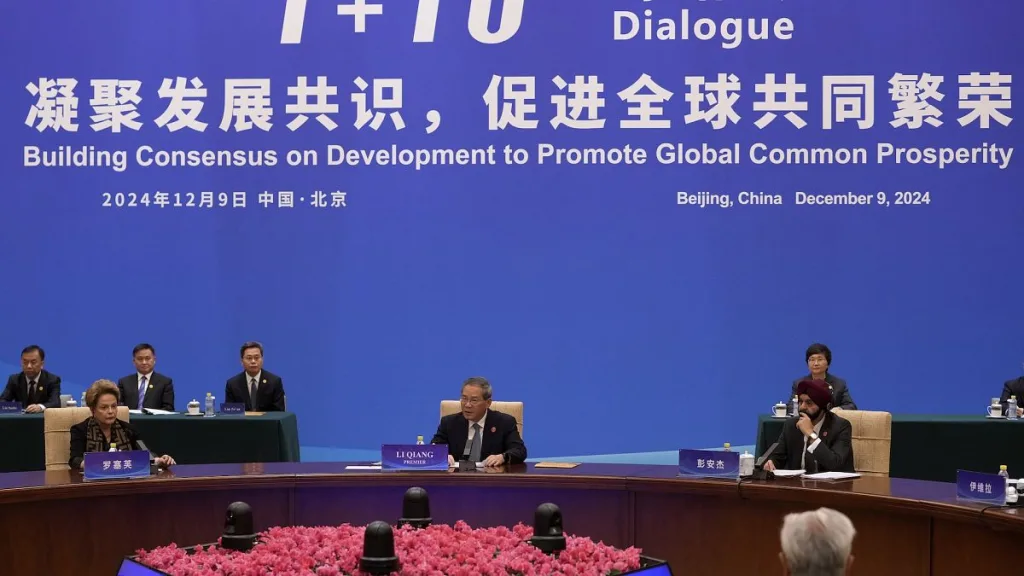In an era marked by a surge of corporate commitments to decarbonization and net-zero emissions, the need for a reliable system to verify actual greenhouse gas reductions has never been greater. Context Labs, founded by the accomplished former MIT Sloan Fellow and serial entrepreneur Dan Harple SM ’13, is stepping up to tackle this crucial challenge with an innovative analytics platform designed to enhance transparency in emissions data.
This cutting-edge platform contextualizes data from numerous sources, including sensors and satellites, offers third-party verification, and securely logs all information on a blockchain. Through this technology, Context Labs delivers an interactive view of emissions throughout every facet of a company’s operations, empowering leaders to identify the most polluting aspects of their business.
“There’s an old saying: unless you measure something, you can’t change it,” says Harple, the firm’s CEO. “I envision our approach as an AI-driven digital lens into organizational activities. Our mission is to accelerate improvements for the planet.”
Context Labs is already collaborating with some of the world’s largest energy companies, such as EQT, Williams Companies, and Coterra Energy, to verify emissions reductions. Additionally, a partnership with Microsoft, announced at last year’s COP28 United Nations climate summit, allows any organization using Microsoft’s Azure cloud to seamlessly integrate their sensor data into Context Labs’ platform, offering a detailed examination of their environmental impact.
Harple highlights that this progress drives informed sustainability initiatives at scale, while also acting as a bulwark against vague claims about environmentally friendly practices that often fall short, commonly referred to as “greenwashing.”
“Simply generating data isn’t sufficient, and our clients understand this. Even with the best intentions to mitigate emissions, skepticism remains,” Harple emphasizes. “You can think of our platform as an anti-greenwashing insurance policy. If you face criticism regarding your emissions, we deconstruct the data like it’s shrink-wrapped and roll it back through time on the blockchain, allowing you to trace precisely how, when, and where it was measured and tracked. It’s truly the gold standard of evidence.”
A Unique Master’s Journey
Harple’s journey to MIT was not conventional; he arrived as a seasoned entrepreneur whose ventures had pioneered critical internet technologies— including real-time video streaming, which powers platforms like Zoom and Netflix, as well as key elements of the popular Chinese social media site Weibo.
His introduction to MIT began with a compelling paper he crafted for venture capitalists in the U.S. that advocated for investments in the Netherlands, his then home. The paper piqued the interest of MIT Professor Stuart Madnick, who encouraged Harple to join the Sloan Fellows program to further explore strong innovation ecosystems.
Having previously founded and successfully exited multiple companies, Harple was no ordinary student in the Sloan Fellows program in 2011. He once organized a summit at MIT for prominent Dutch entrepreneurs and government officials, featuring lab tours and discussions with former MIT President L. Rafael Reif.
“Everyone was captivated by MIT, which spurred me to launch a course called REAL, the Regional Entrepreneurial Acceleration Lab,” Harple explains. This initiative eventually evolved into what is now known as REAP, the Regional Entrepreneurship Acceleration Program, which has engaged communities globally.
Harple views REAL as a practical framework to implement his theories on nurturing innovation. During his tenure at MIT, which included collaboration with the Media Lab, he refined these theories into a concept he calls pentalytics, enabling the measurement and forecasting of innovation ecosystem resilience.
“My belief was that MIT should leverage analytics and data,” Harple reflects. “The thesis I produced was a framework for AI-driven network graph analytics, enabling the modeling of scenarios using analytics and AI for predictive outcomes regarding the thriving of innovation ecosystems.”
After solidifying his pentalytics theory, Harple sought to test it within a company context. Initially, the vision for Context Labs was to create a verification system aimed at combatting misinformation online, including fake news and deepfakes. In 2018, he crossed paths with climate investor Jeremy Grantham, who helped him recognize the critical need for transparent environmental data.
“Our strategy was quintessentially MIT-like,” Harple notes. “Our approach was to measure, monitor, and contextualize data to ensure authenticity. There has been significant deception in this field, contributing to the downfall of voluntary carbon markets last year, largely due to insufficient empirical data.”
Context Labs implements its solution with a platform named Immutably, which continuously aggregates diverse data streams, encrypts the data, and stores it on a blockchain. This platform not only verifies information with third-party assessments—Context Labs collaborates with top global accounting firm KPMG—but also facilitates further applications.
Among these applications is Decarbonization-as-a-Service (DaaS), which utilizes Immutably’s data to deliver companies a digital representation of their entire operational emissions footprint. Clients can leverage DaaS to assess their emissions and generate certification for the verified carbon intensity of their products.
Contextualizing Emissions Data
Context Labs is actively engaged with oil and gas corporations, utilities, data centers, and large industrial operators, analyzing billions of data points daily. For instance, EQT, the largest natural gas producer in the U.S., employs Context Labs’ services to verify the carbon intensity of its operational assets while refining its greenhouse gas emissions reduction strategy. Other notable clients include nonprofit organizations such as the Rocky Mountain Institute and the Environmental Defense Fund.
“I often receive inquiries about the total addressable market,” Harple reveals. “In my opinion, it’s unparalleled in history. Why? Because every nation requires a decarbonization strategy, along with the instrumentation and digital framework to implement it, just as every corporation does.”
Headquartered in Kendall Square, Cambridge, Massachusetts, Context Labs not only serves as a practical application for Harple’s pentalytics theory on innovation ecosystems but also maintains operations in Houston and Amsterdam.
“This company acts as a living lab for pentalytics,” Harple states confidently. “I foresee Kendall Square 1.0 being characterized by factories, Kendall Square 2.0 highlighting biotech, and Kendall Square 3.0 emerging as the forefront of climate tech.”
Photo credit & article inspired by: Massachusetts Institute of Technology



